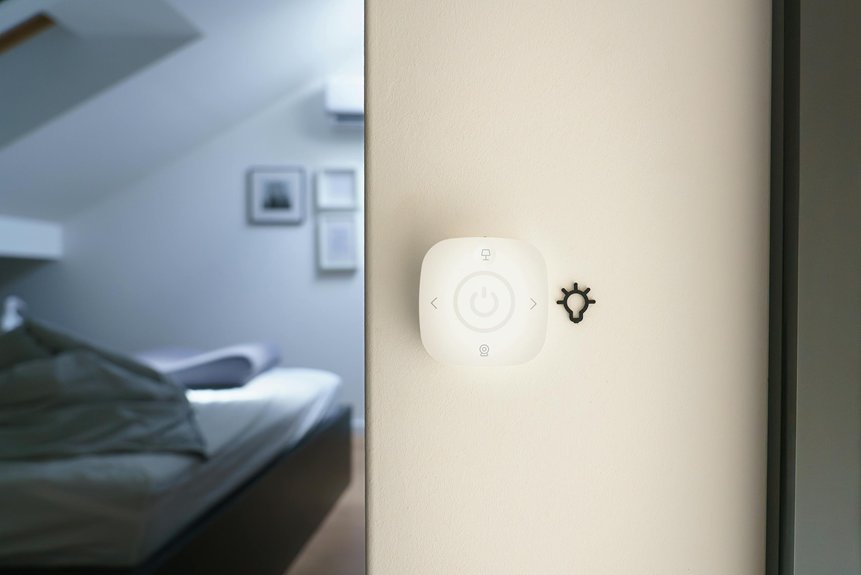
You might not realize how much blue light from screens affects your sleep. This light can disrupt your melatonin production, making it harder to fall asleep. But with the right blue light blocking devices, you can create a more conducive environment for rest. Understanding the science behind this can help you make informed choices. So, what are the benefits of using these devices, and how can you effectively incorporate them into your daily routine?
The Science Behind Blue Light and Sleep Disruption
As you wind down for the night, the blue light emitted from screens can disrupt your natural sleep cycle. This light affects your body's production of melatonin, a hormone that regulates sleep.
When you expose yourself to blue light, especially before bedtime, it signals your brain to stay alert. Your circadian rhythm, which governs your sleep-wake cycle, gets thrown off balance, making it harder to fall asleep.
This disruption can lead to restless nights and groggy mornings. You might find yourself tossing and turning, struggling to get quality rest.
Understanding this connection between blue light and sleep is crucial in recognizing why you might feel fatigued. By being mindful of your screen time, you can take steps toward better sleep quality.
Benefits of Blue Light Blocking Devices
Using blue light blocking devices can significantly improve your sleep quality by minimizing the disruption caused by screen exposure. By filtering out harmful blue light, these devices help your body produce melatonin, the hormone responsible for regulating sleep.
You'll likely find it easier to fall asleep and stay asleep throughout the night, leading to more restful slumber. Additionally, using these devices can reduce eye strain and fatigue caused by prolonged screen time, making your evenings more comfortable.
As a result, you might feel more alert and focused during the day. In short, blue light blocking devices not only enhance your sleep but also contribute to your overall well-being, allowing you to wake up feeling refreshed and energized.
Tips for Incorporating Blue Light Blocking Devices Into Your Routine
How can you seamlessly integrate blue light blocking devices into your daily routine?
Start by wearing blue light blocking glasses during evening screen time, whether you're watching TV or scrolling through your phone.
If you use a computer, consider installing blue light filtering software or activating night mode on your devices. Set a reminder to switch to these solutions about an hour before bedtime.
You can also replace your regular light bulbs with blue light blocking ones in your home.
Create a tech-free zone in your bedroom, using calming activities like reading or meditating instead.
Lastly, make it a habit to charge your devices away from your bedside to reduce temptation, ensuring a more restful night's sleep.
Conclusion
Incorporating blue light blocking devices into your routine can significantly improve your sleep quality. By reducing blue light exposure, you support your body's natural melatonin production, helping you fall asleep faster and stay asleep longer. Plus, these devices can ease eye strain from screen time, leaving you feeling more alert during the day. So, whether you opt for glasses or filtering software, making this simple change can lead to a healthier, more restful night's sleep.




